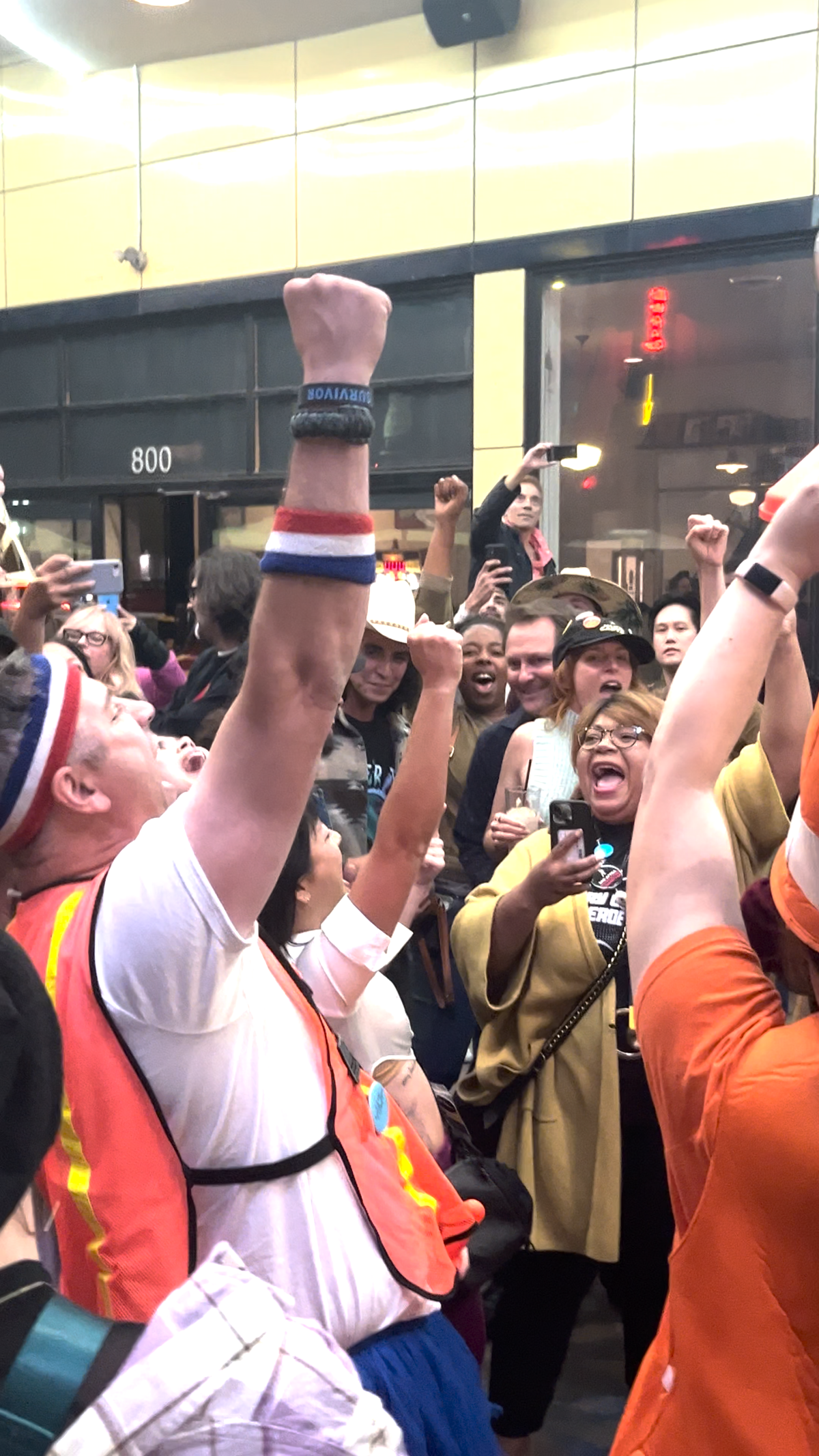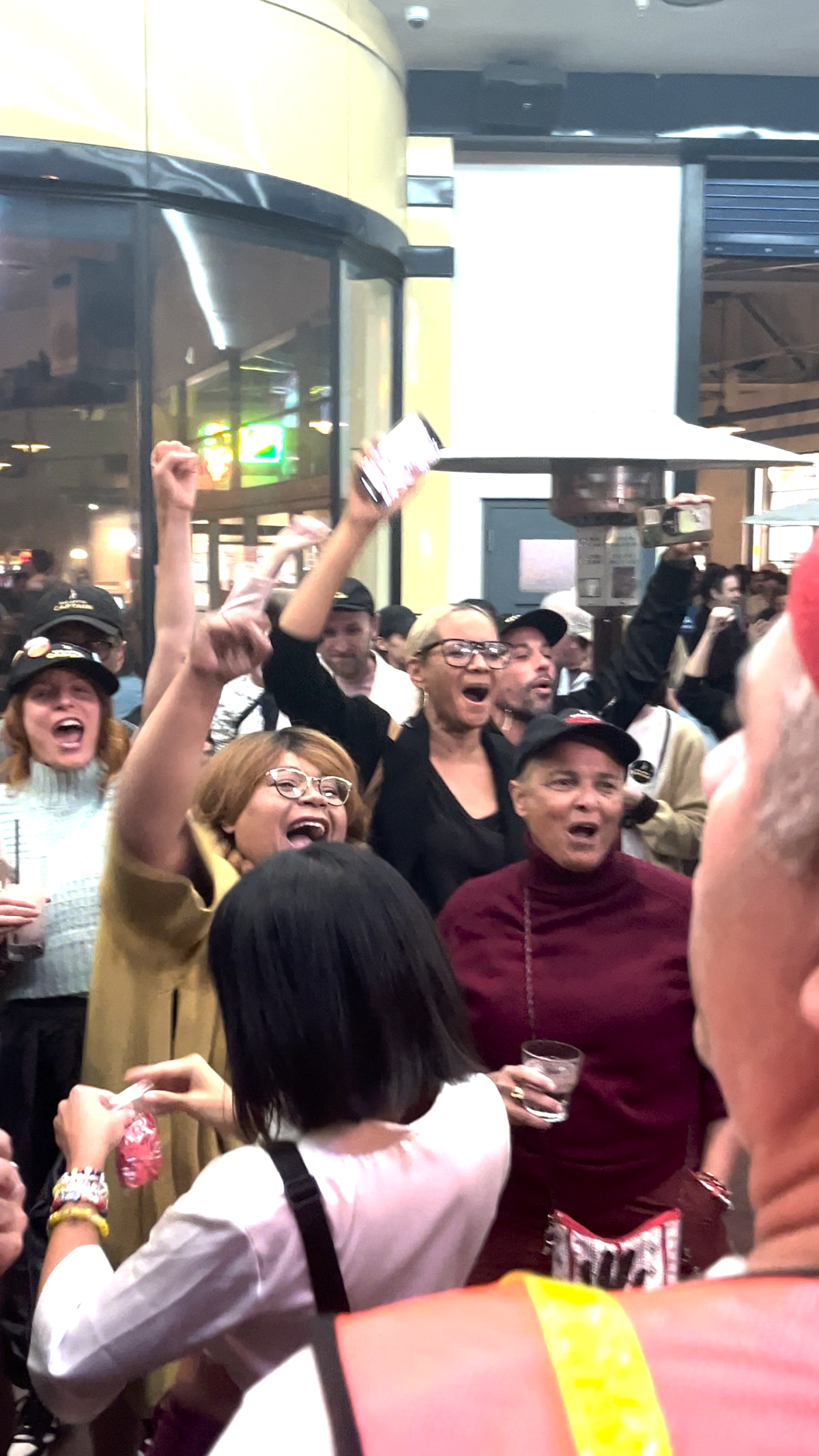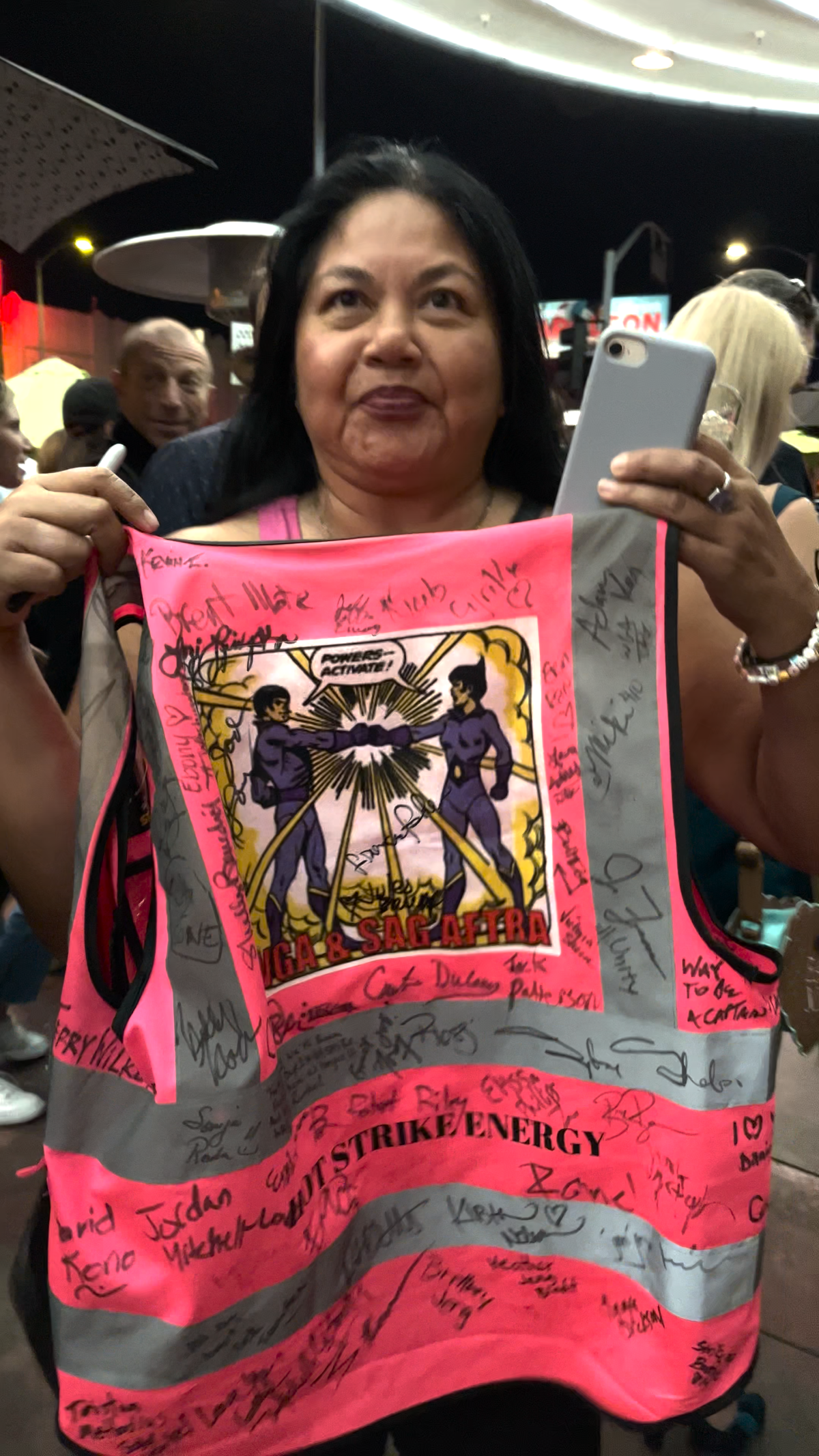The SAG-AFTRA celebration scene: ‘We are sexy, we are funny, all these studios owe us money’

- Share via
About 150 actors gathered on the All Season Brewing Co. patio Wednesday night with drinks in hand, taking group selfies, hugging one another and chanting, “When we fight, we win,” and “We are sexy, we are funny, all these studios owe us money,” as tears of joy flowed on some faces.
Exuberance was on tap at the Los Angeles bar after the Screen Actors Guild-American Federation of Television and Radio Artists struck a tentative deal with the Alliance of Motion Picture and Television Producers on Day 118 of the Hollywood actors’ strike, the longest in history.
Frances Fisher, a SAG-AFTRA negotiating committee member, elicited cheers as she entered the celebration, rushed by a crowd that took selfies with the actor, who wore a “SAG-AFTRA Strong” T-shirt, a union negotiating committee baseball cap and SAG-AFTRA and Writers Guild of America buttons.
Fisher stressed the significance of the labor movement.
“We’re reviving interest in unions, and that’s really important,” she said to The Times. “There was a poll that 71% of people in America are favorable toward unions. It’s never been that high.”
Expressing relief and happiness that the strike is finally over, Fisher said she’s also glad that she didn’t have to put on the same clothing the next morning. She pointed to her SAG-AFTRA lanyard, which was falling apart after so much wear.
“My routine has been that I get up every morning, put my uniform on, and go to a picket line or two and exchange the energy with everyone on the line and then go and do negotiations,” she said. “I’ve been on the picket line every day. … It’s been a long haul, and very worth it.”
One of the sticking points in the negotiations was artificial intelligence. Actor Woody Schultz, a member of the negotiating committee in addition to the AI subcommittee established by SAG-AFTRA President Fran Drescher, said he is confident in the AI protections in the deal and calling the overall agreement “historic.”
“We would not have closed this deal unless we felt very secure in what we achieved as far as AI protection,” Schulz said. “It’s such an incredible deal. There are so many breakthroughs. We’ve managed to get something for almost every category of work within the union this time, which is such a rarity.”
Some actors said it felt surreal for the strike to have finally ended. The said they were unable to fully grasp the reality of it being over.

Actor Samantha Mathis, who lives in New York, had been in Los Angeles as a member of the negotiating committee.
“We’re all in a little bit of a shell-shocked state of, ‘Is this really happening? Is it really over?’” she said. “I think it will feel all the more real on Friday after the national board votes it up, which I’m sure they will.”
For some actors, life after the strike will start a whole journey. Miles Berman began the strike as a nonunion actor who was reluctant to join SAG-AFTRA even though he’d been eligible for the last five years. Walking the picket line every day, however, inspired him to join.
“Walking around with everyone and seeing Frances, talking to the negotiating committee and seeing how hard we were all fighting, I realized that I’m already in this fight. I’m already on this side,” Berman said. “So two Saturdays ago, I paid my dues and became a SAG member, and I became a strike captain on the Paramount lot the next day.”
Berman said he cried when he received an email from SAG confirming that he was a member of the guild.

Actor Romel De Silva, also a strike captain at the Paramount lot, held a small gold traffic cone covered in strike captains’ signatures.
“We were cone crazy at Paramount, because the cone was very important to our traffic flow. It became our mascot, and everyone started dressing up like cones, and there’s a cone meme account,” he said. “The cone is a symbol of our strength and resilience together, our solidarity.”
A career as an actor can be “completely isolating,” De Silva said, “but within the strike, we found a community with one common goal. We believe in the same thing.”
For some, like actor and dialect coach Keri Safran, a SAG-AFTRA strike captain, the deal not only comes as a huge relief but also a rare source of light during dark, difficult times across the globe.
“There is so much insanity in the world right now,” she said, adding that “the fact that we have come out with a deal that is fair and just” can be celebrated as “an incredible thing to hold.”
With Thanksgiving two weeks away, Schultz noted that the deal couldn’t have come at a better time.
“We have something to truly be thankful for now,” he said. “This was a difficult thing for everybody to do, and I can’t express how much the unbelievable support and solidarity shown to us among the members meant. They’re the reason we were able to do this. My heart and gratitude go out to them.”
As to the strike’s length, Schultz put the blame squarely on the studios.
“We never left the table. We were always ready to negotiate. The ball was in their court to talk to us anytime they wanted,” he said. “The strike lasted as long as they wanted it to last.”
More to Read
Inside the business of entertainment
The Wide Shot brings you news, analysis and insights on everything from streaming wars to production — and what it all means for the future.
You may occasionally receive promotional content from the Los Angeles Times.










